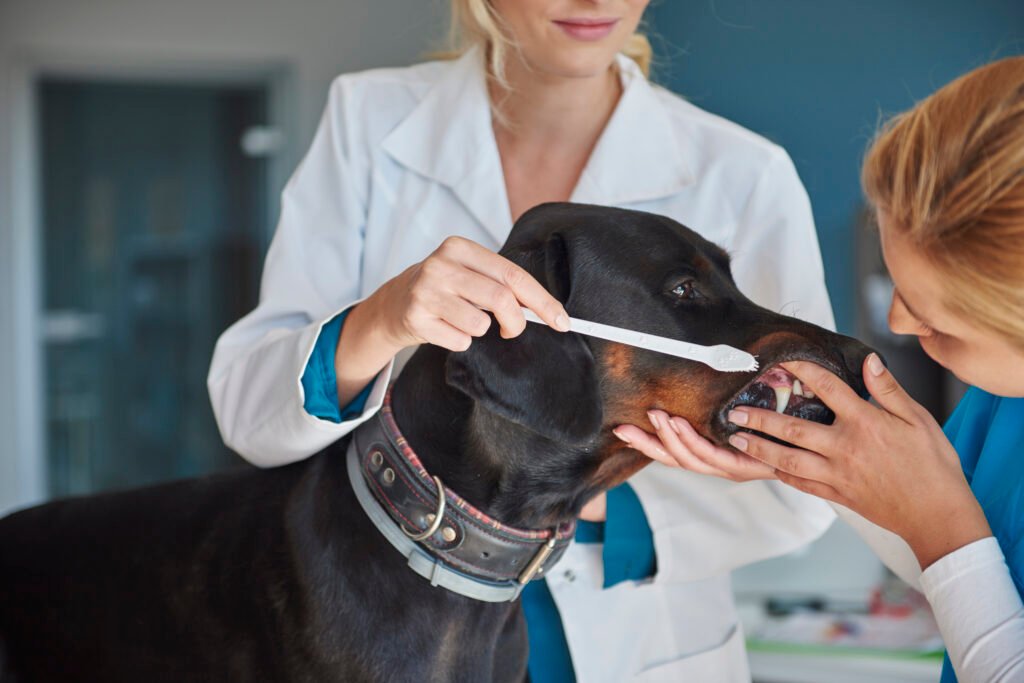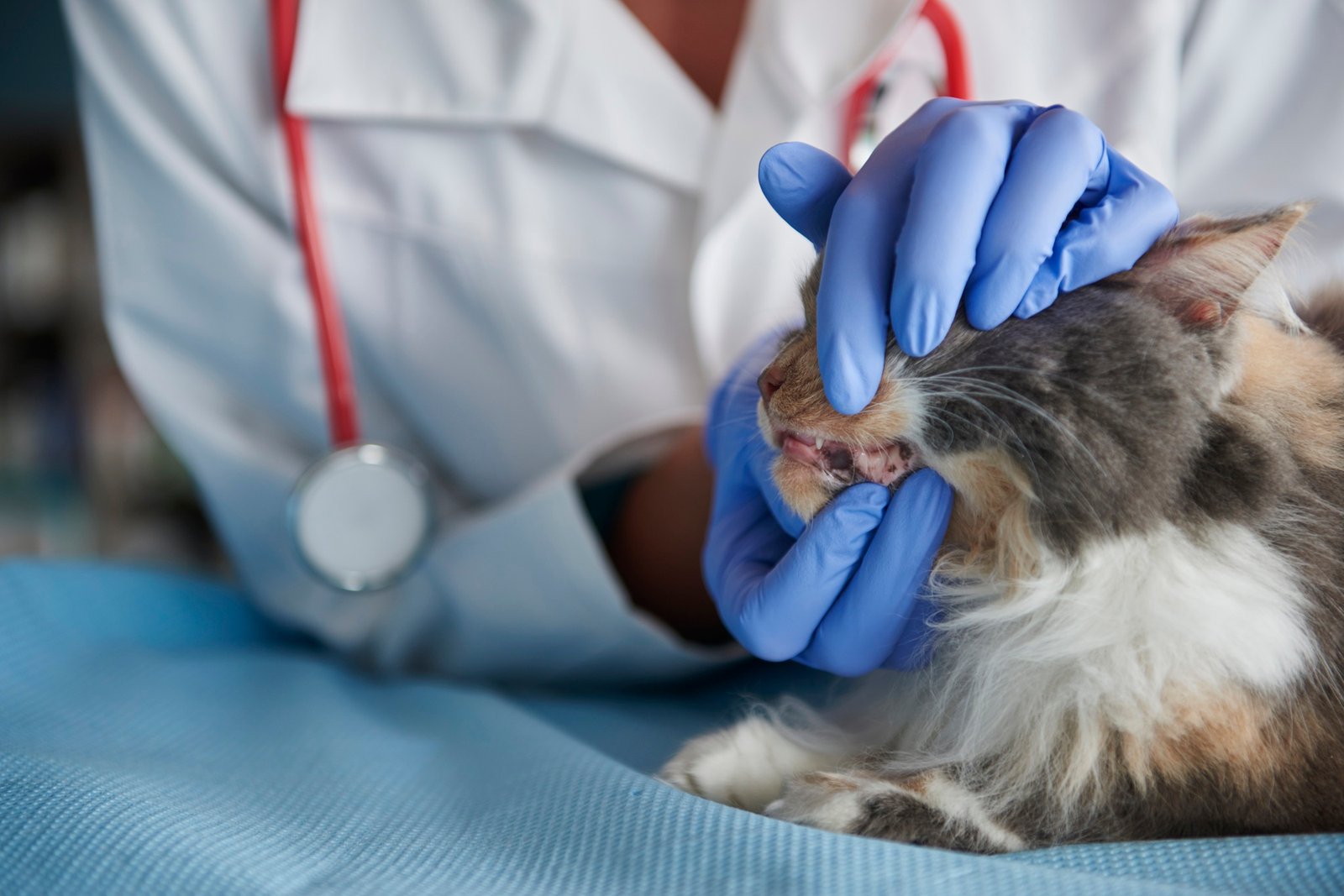
Caring for your pet’s teeth is more than just a cosmetic concern—it’s a cornerstone of their overall health and happiness. Much like humans, pets are susceptible to oral health issues, and neglecting this aspect can lead to serious complications. Why dental care is important for your pet’s health lies in the prevention of diseases, improved comfort, and enhanced quality of life for your furry companions.
While it might seem daunting at first, incorporating regular dental care into your pet’s routine can pay dividends. From the basics of oral hygiene to professional cleanings, let’s delve into why dental care deserves a prominent spot in your pet’s health care regimen.
The Basics of Pet Oral Hygiene:
Your pet’s oral health is integral to their overall wellbeing. Regular dental care helps combat common issues like plaque and tartar, which, if left untreated, can escalate into painful gum diseases such as gingivitis or periodontal disease.
These conditions don’t just affect the mouth—they can lead to systemic infections impacting the heart, liver, and kidneys. Recognizing that oral health for pets is just as important as it is for humans can make a world of difference in preventing unnecessary suffering.
In addition to tartar buildup, pets may also suffer from tooth fractures, abscesses, and oral tumors. Understanding these risks highlights why maintaining your pet’s oral hygiene is vital.
Benefits of Proper Dental Care:
Ensuring proper dental care provides a host of benefits for your pets, both immediate and long-term. By addressing dental health, you can:
- Reduce the Risk of Infections: Healthy teeth and gums prevent bacteria from entering the bloodstream and causing infections in other organs.
- Improve Overall Health: A healthy mouth supports better digestion and reduces chronic pain caused by oral diseases.
- Promote Long-Term Pet Health: Regular dental care enhances your pet’s longevity by curbing preventable health issues.
From brighter smiles to a more playful attitude, the importance of pet dental care goes beyond appearances—it directly impacts their zest for life.
Signs Your Pet Needs Dental Attention:
Knowing when your pet requires dental intervention is critical. Look for these warning signs:
- Bad Breath: While some level of odor is normal, a persistent foul smell could signal gum disease or tooth decay.
- Bleeding Gums: Gums that bleed during eating or chewing indicate possible inflammation or infection.
- Difficulty Eating: Pets with dental pain may struggle to chew food, drop their kibble, or prefer soft diets.
Recognizing and acting on these signs ensures that preventing pet dental issues becomes a proactive effort. Scheduling regular dental check-ups for pets ensures that potential problems are caught and treated early.

How to Maintain Your Pet’s Dental Health:
Maintaining your pet’s oral health involves consistent care and using the right tools. Here are some practical tips:
- Brush Daily: Use pet-specific toothpaste and a soft-bristled toothbrush designed for pets.
- Incorporate Dental Treats: Dental chews and toys can help reduce plaque and massage gums.
- Explore Pet Dental Cleaning Tools: Items like dental wipes or oral rinses can complement brushing.
- Provide a Healthy Diet: Crunchy kibble and specific pet foods promote cleaner teeth and fresher breath.
Regular attention to dental health tips for pets ensures their teeth remain healthy, minimizing the need for extensive veterinary intervention.
Professional Pet Dental Services:
Despite diligent home care, professional attention is indispensable for maintaining optimal dental health. Veterinarians offer comprehensive services, including:
- Thorough Cleanings: Scaling and polishing remove tartar buildup below the gumline, preventing infection.
- Oral Examinations: Regular check-ups help identify issues like tumors, loose teeth, or jaw abnormalities.
- Specialized Treatments: Vets can address fractures, infections, and advanced gum disease effectively.
By incorporating veterinary dental services into your pet’s healthcare plan, you ensure that their oral health is managed with expertise.
الخاتمة
Dental care is an essential pillar of your pet’s overall health. From daily brushing to professional cleanings, taking proactive steps ensures your pet’s comfort and wellbeing. Routine dental care is the key to preventing pain, illness, and costly treatments down the line.
Remember, why dental care is important for your pet’s health extends beyond just oral hygiene—it’s about giving your furry friend a healthier, happier life. Prioritize their dental care today and reap the rewards of a lasting bond with your cherished companion.
FAQs
What are the most common dental problems in pets?
Pets often face issues like plaque buildup, tartar, gum disease, tooth fractures, and infections.
How often should I brush my pet’s teeth?
Daily brushing is ideal, but brushing at least a few times a week can significantly reduce plaque and tartar.
Are dental treats effective for maintaining pet oral health?
Yes, dental treats can complement brushing by reducing plaque and stimulating gums.
When should my pet have a professional dental cleaning?
Veterinary dental cleanings are typically recommended annually, but this can vary based on your pet’s age and oral health.
Can poor oral health affect my pet’s overall health?
Yes, untreated dental issues can lead to infections that impact vital organs like the heart, kidneys, and liver.
What tools can I use for at-home pet dental care?
Pet toothbrushes, toothpaste, dental wipes, and oral rinses are excellent tools for maintaining dental health at home.

